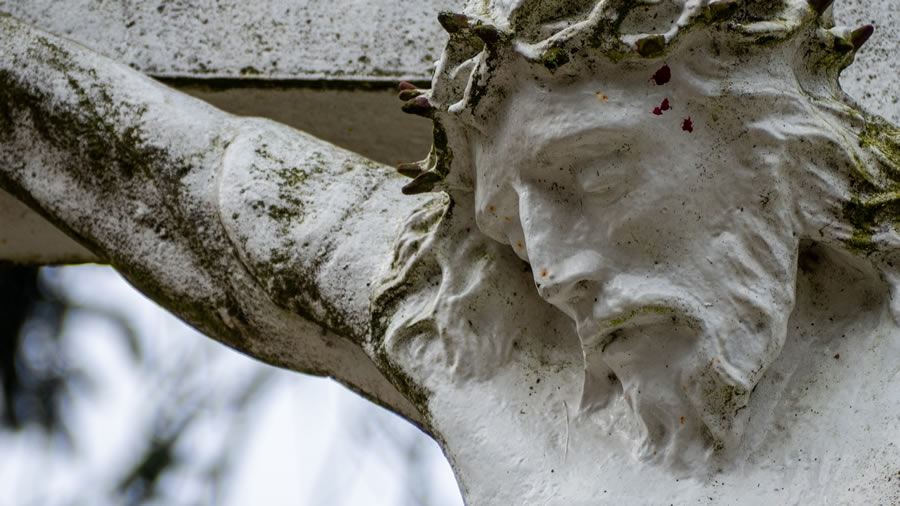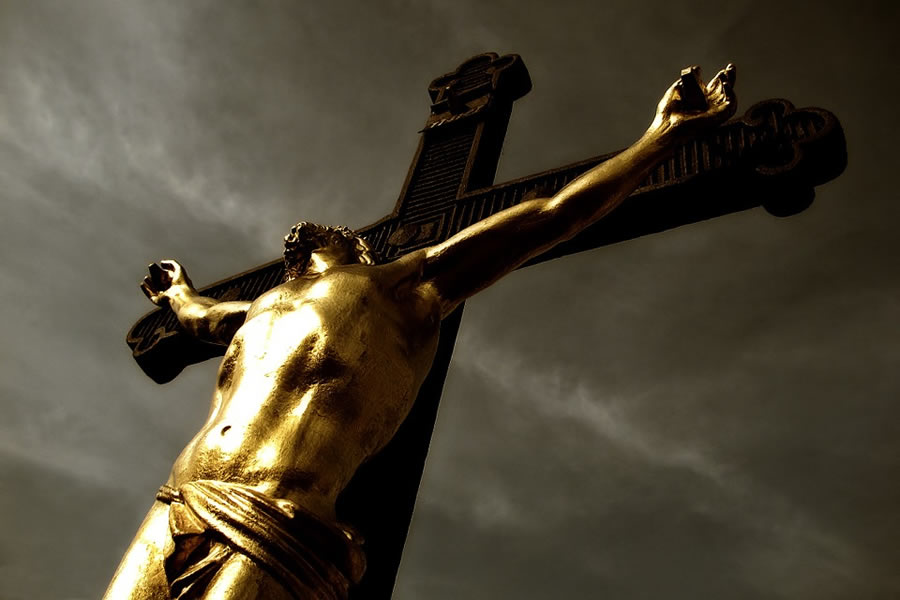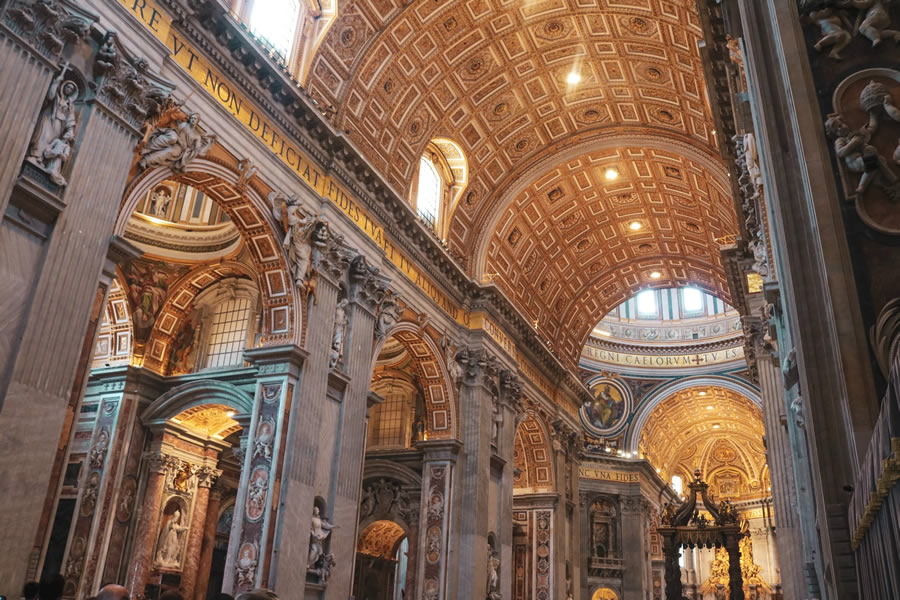
The Reproaches of Good Friday/The Warfare of the Church
03-28-2021Weekly ReflectionThe Reproaches are an important part of Good Friday because they highlight the essential injustice of the Crucifixion, the culpability of humanity in this action, and the role of sin in those times and our times in bringing this about. We are given remarkable gifts by God, and the signs are all around us, and yet often we do not show gratitude. Rather, we turn our backs on God and deny God due reverence in our lives and in our worship.
READ MORE
Lenten Veils
03-21-2021Weekly ReflectionHistory
Whereas according to current Roman use Crosses and images are only veiled during Passiontide, in the Middle Ages the common thing was to cover them right at the start of Lent, be it from the Terce (Mid-Morning Prayer) of the Monday after the first Sunday of Lent, be it – although less frequently – already from Ash Wednesday. Here and there the veiling was even done on Septuagesima, 70 days before Easter. Moreover, not only Crosses and images were withdrawn from the view of the faithful by means of veils, but also reliquaries and chandeliers, and even evangeliaries (Gospel Books) whose covers were ornamented with pictorial representations were sometimes veiled. […]
READ MOREWhat are Sacramentals?
03-18-2021From the desk of Fr. VillaMany people, while understanding the meaning of the sacraments, have never heard of sacramentals.
Sacramentals are sacred signs instituted by the holy Church, which bear a resemblance to the sacraments. They signify effects, of a spiritual nature, which are obtained through the intercession of the Church. By these people are disposed to receive the chief effects of the sacraments and various occasions in life are rendered holy.
READ MOREWhy Do We Need Commandments?
03-18-2021From the desk of Fr. VillaSt. Thomas AquinasWe are placed between the things of this world, and spiritual goods from which eternal happiness consists: so that the more we cleave to the one, the more we withdraw from the other, and vice versa. Wherefore whoever cleaves wholly to the things of this world, so as to make them his reason for living, and to look upon them as the reason and rule of all he does, falls away altogether from spiritual goods. Hence this disorder is removed by the commandments.
READ MORE
Not a Christianity 'A La Carte'
03-14-2021Weekly ReflectionWe have heard the passage from the Acts of the Apostles (20:17-38) in which Saint Paul speaks to the presbyters of Ephesus, intentionally recounted by Saint Luke as the testament of the apostle, as a discourse destined not only for the presbyters of Ephesus, but for the presbyters of all time. Saint Paul is speaking not only with those who were present in that place, he is really speaking with us, so let us try to understand a little of what he is saying to us, at this time. [...]
READ MORE
What Is the Meaning of a Station-Church?
03-07-2021Weekly ReflectionOne of the characteristics of the Lenten season is something call the Stations or Station Churches. Each day in Lent has a “station-church” to which the faithful would process and pray and fast. Station became the place before which or within which the faithful walked in procession and, tired out, but always standing, sometimes leaning on a stick, assisted, before leaving, at the celebration of the Liturgy Station in the secondary sense meant a partial fast or day of partial fast, as distinguished from a day of full fast. The station normally ceased at the ninth hour (3PM), while the full fast was prolonged to the evening. Wednesdays and Fridays were days of customary if not obligatory Christian fast by the beginning of the second century.
READ MORE